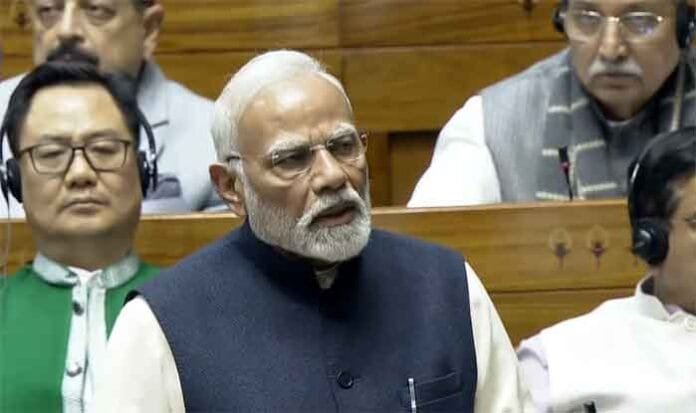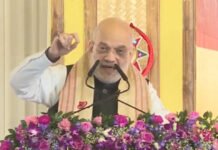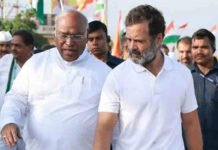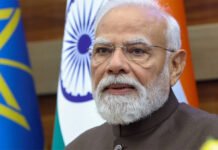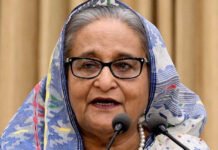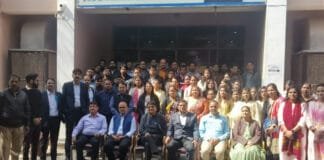The Winter Session of Parliament 2024 witnessed a historic development with the introduction of the Constitution (129th Amendment) Bill, 2024, commonly referred to as the ‘One Nation, One Election’ Bill. This ambitious legislative proposal, introduced by Union Law Minister Arjun Ram Meghwal, seeks to synchronize elections for the Lok Sabha and state assemblies, a move anticipated to redefine India’s electoral landscape. Here, we provide a detailed analysis of the bill, its implications, and the political responses it has garnered.
What is the ‘One Nation, One Election’ Bill?
The ‘One Nation, One Election’ Bill proposes the simultaneous conduct of elections for the Lok Sabha and state legislative assemblies. Currently, elections are held at different times across the country, leading to a near-constant election cycle. By aligning these elections, the government aims to:
- Reduce administrative and financial costs.
- Minimize disruption to governance caused by the model code of conduct.
- Streamline electoral processes and enhance efficiency.
This bill necessitates constitutional amendments, as it directly impacts Articles 83, 85, 172, and 174 of the Indian Constitution, which govern the duration and dissolution of legislatures.
Key Provisions of the Bill
- Amendment of Constitutional Provisions: The bill seeks to amend key articles of the Constitution to enable simultaneous elections. These amendments are critical to aligning the terms of both the central and state governments.
- Empowering the Election Commission: The Election Commission of India (ECI) will play a pivotal role in implementing the synchronized electoral framework. Enhanced powers and resources will be allocated to the ECI to manage the logistical complexities.
- Provision for Mid-Term Dissolutions: In case a state legislature or the Lok Sabha is dissolved prematurely, the bill proposes mechanisms for conducting partial elections, ensuring the broader synchronization is retained.
Political Responses and Opposition’s Concerns
The bill has elicited mixed reactions across the political spectrum:
- TMC’s Critique: Trinamool Congress MP Kalyan Banerjee expressed strong opposition, highlighting concerns about the centralization of powers and its potential impact on federalism. According to Banerjee, the bill grants disproportionate authority to the Election Commission, potentially undermining state governments.
- Congress’s Stand: Congress MP Gaurav Gogoi labeled the bill as an attack on democratic rights, accusing the BJP-led government of attempting to dilute the sanctity of free and fair elections. He reiterated the Congress party’s commitment to opposing the bill through the INDIA alliance.
- NCP and SP’s Demand for Deliberation: Nationalist Congress Party MP Supriya Sule and Samajwadi Party MP Ram Gopal Yadav both emphasized the need for deeper discussions and suggested forming a Joint Parliamentary Committee (JPC) to examine the bill.
Government’s Defense of the Bill
The ruling BJP has staunchly defended the ‘One Nation, One Election’ initiative. During a discussion in the Rajya Sabha, BJP President JP Nadda countered the opposition’s allegations, stating:
- Improved Governance: Nadda argued that synchronized elections would minimize policy paralysis caused by frequent polls and enable governments to focus on long-term developmental goals.
- Economic Rationale: He highlighted the significant cost savings that would arise from reducing the frequency of elections.
- National Unity: Nadda emphasized that a unified electoral cycle would foster a greater sense of national integration.
Historical Context and Precedents
Simultaneous elections were the norm in India until 1967. However, the dissolution of some state assemblies and the Lok Sabha in subsequent years led to the current staggered system. Since then, multiple commissions, including the Law Commission of India and the NITI Aayog, have recommended returning to synchronized elections to address issues of governance and fiscal prudence.
Potential Challenges and Concerns
While the proposed bill offers several advantages, it also presents significant challenges:
- Federalism at Stake: Critics argue that simultaneous elections could undermine the federal structure by imposing a uniform timeline on diverse states with unique political and social contexts.
- Logistical Hurdles: Conducting elections for over 900 million voters in a single phase or limited phases requires immense planning, resources, and technological upgrades.
- Impact on Regional Parties: Smaller regional parties fear marginalization in a synchronized system dominated by national-level narratives.
- Judicial Review: The proposed amendments are likely to face legal scrutiny, with questions about their compatibility with the basic structure of the Constitution.
Steps Ahead: Joint Parliamentary Committee and Deliberations
Following its introduction in the Lok Sabha, Union Minister Arjun Ram Meghwal recommended that the bill be referred to a Joint Parliamentary Committee for comprehensive evaluation. The committee will:
- Analyze the constitutional and practical implications of the proposed amendments.
- Consult stakeholders, including political parties, legal experts, and civil society organizations.
- Present a detailed report with recommendations for parliamentary debate.
Implications for the Future of Indian Democracy
If implemented, the ‘One Nation, One Election’ initiative could:
- Transform India’s Electoral System: By reducing the frequency of elections, the proposal aims to enhance administrative efficiency and governance.
- Strengthen Policy Continuity: Governments would have longer uninterrupted terms to implement their policies effectively.
- Shift Political Campaign Dynamics: With synchronized elections, political parties may need to devise cohesive, nationwide strategies rather than region-specific campaigns.
Conclusion
The introduction of the ‘One Nation, One Election’ Bill marks a pivotal moment in India’s democratic journey. While the bill’s proponents highlight its potential to streamline governance and reduce costs, critics raise pertinent concerns about its impact on federalism and electoral fairness. As parliamentary deliberations progress, the nation awaits a balanced and inclusive resolution that upholds the spirit of democracy.

